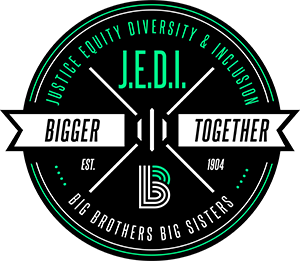Be a Big Brother or Big Sister
Being a Big Brother or Big Sister is one of the most rewarding and fulfilling things you can do. Help to shape a child’s future through empowering him or her to achieve their goals and have a lot of fun in the process. You and your Little can share the kinds of activities you already like to do.
Play sports together. Go on a hike. Read books. Eat a pizza with extra anchovies. Or just give some advice and inspiration. Whatever it is you enjoy, odds are you’ll enjoy it even more with your Little—and you’ll be making a life-changing impact.
Community-Based
Relationships involving one-to-one outings and activities, doing things the Big and Little enjoy together.
Bigs With Badges/Bigs In Blue
A one-to-one mentoring program that connects youth with law enforcement officers and first responders to build lasting relationships.
Beyond School Walls
Addresses the gap in workforce readiness programming by engaging youth with a professional mentor who works within the mentee’s desired career field.
Empowering Future Leaders (EFL)
It is a new program focusing on four primary youth development areas: Life Skills, Leadership Development, Cultural Competence, and Career Development. This program is delivered at participating schools and for 6-weeks in the summer at rotating locations.
"*" indicates required fields
Steps to Become a Big
- Inquiry
- Information Session
- Return application
- Background checks
- Volunteer training
- Home interview
- Waiting list
- Pre-match
- Match
Match Supervision
- The caseworker will contact the parent/guardian, child and volunteer monthly for the first year of the match.
- The client, parent and volunteer will contact their caseworker on a monthly basis to keep them Informed.
- All parties will meet to conduct an Annual Match Evaluation at the year anniversary date.
- All parties will meet to officially close the match and a letter will be forwarded to confirm
Volunteer Responsibilities
- Be a positive role model for the child
- Follow all safety regulations and update driving information annually
- Participate in developing goals for the match
- Maintain consistent contact with the parent, child and caseworker.
Parent/Child Responsibilities
- Child will ready and dressed appropriately for planned activities
- Participate in developing goals and activities for the match
- Restricted contact with the volunteer should not be used as a form of discipline
- Maintain contact with the volunteer and caseworker
- Parent will be supportive of the match relationship

